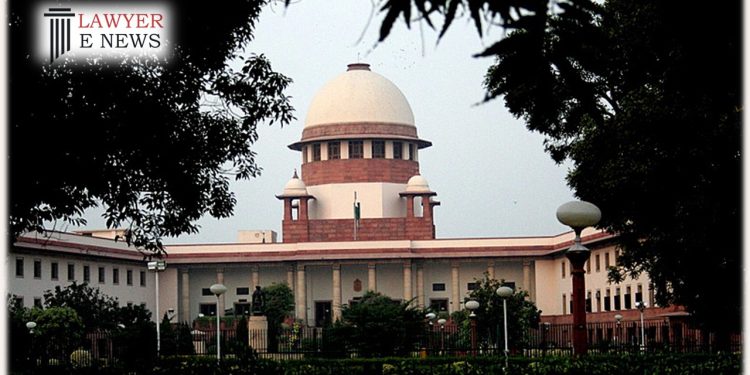Section 138 N.I. Act – To rebut presumption, accused can rely on evidence submit by the complainant – SC

Supreme Court observed in the recent judgement (Rajaram vs Maruthchalam D.D 18 Jan 2023) that the standard of proof for rebutting the presumption is preponderance of probabilities. To rebut the presumption, the accused can rely on evidence or materials submitted by the complainant.
In 1992, the Appellant’s wife subscribed to a 5-year chit-fund with Maruthachalam, and the Appellant submitted two signed blank cheques drawn on his sole proprietorship’s bank account to be used as security. In 1995, the wife subscribed to another 5-year chit-fund with Maruthachalam. Appellant repeatedly requested the release of the subscription amount (Rs. 6 lakhs) but it was never released. The Appellant threatened Maruthachalam with legal action, and Maruthachalam presented the two cheques for encashment but returned unpaid with an endorsement of “account closed.” Two civil suits for recovery of money were instituted by Nachimuthu and Maruthachalam.
The Respondents filed civil suits for recovery of money alleging that the Appellant borrowed Rs. 3 Lakhs and executed a promissory note. The criminal case was pursued under the N.I. Act and was dismissed, with an appeal pending.
Recovery Suit filed by Maruthachalam alleging a similar debt and execution of a promissory note by the Appellant. Both civil suits were dismissed, and appeals were preferred before the High Court. The appeals against the criminal matters were allowed by the High Court and both civil suits were decreed.
Appellants approached the Supreme Court against all three High Court judgments.
Appellants Contentions
The High Court wrongly overturned the well-reasoned judgments of the trial court. She asserts that the blank checks issued as security for chit funds were misused by the respondents.
Appellants argued that the respondents lacked the financial capacity to lend the amount of Rs. 3,00,000 , also contended that there was no evidence to show the respondents could have lent money, as their agricultural income was not declared in their Income Tax Returns.
Supreme Court Observations and Held
Section 139 of the N.I. Act mandates a presumption that a cheque was issued for the discharge of debt or liability upon admission of its execution. The presumption is rebuttable, and the onus is on the accused to raise a probable defense.
The standard of proof for rebutting the presumption is preponderance of probabilities. To rebut the presumption, the accused can rely on evidence or materials submitted by the complainant. Inference of preponderance of probabilities can be drawn from materials and circumstances relied on by both parties.
The accused appellant presented evidence in the form of certified copies of the complainant’s Income Tax Returns for the financial years 1995-1998. The returns showed that the complainant had not declared any loan of Rs. 3 lakhs to the accused and had also not declared any agricultural income.
Supreme Court observed that the learned Trial Court analyzed the evidence and found that the complainant’s Income Tax Returns did not show that he lent money to the accused, and the declared income was not enough to lend Rs.3 lakh. The complaint’s claim that he lent the amount from his agricultural income was found to be unbelievable. The promissory note was also not produced. After considering the defense witnesses and circumstances, the court found that the defense was a possible defense, and the accused was entitled to the benefit of doubt.
Supreme Court held that the defence raised by the appellant satisfies the standard of “preponderance of probability”. The High Court was not justified in reversing the acquittal of the appellant. The judgments and orders passed by the High Court in the Civil Appeals are affirmed, but the decree is modified to restrict it to the amount already deposited by the appellants in both proceedings with interest accrued and the judgment of conviction and order of sentence are quashed, and the judgment of the trial court is confirmed.
RAJARAM S/O SRIRAMULU NAIDU THROUGH L.RS.
VS
MARUTHACHALAM THROUGH L.RS.





